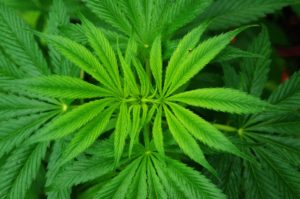 Can I put cannabidiol (CBD) in my food (or beverage or supplement) product?
Can I put cannabidiol (CBD) in my food (or beverage or supplement) product?
We get this question a lot these days. It’s no wonder that people are confused given seemingly conflicting news reports of late with headlines like, “Evo Hemp: ‘Within 6 Months We’ll Be Seeing CBD in Every Major Retailer’” and “CBD-Infused Food Banned by Health Department at NYC Restaurant, Owner Says“. The owner of said NYC restaurant, who had all of her CBD food products embargoed by the New York City Health Department asks, “What’s the law? You just closed down half my business.” That’s a fair question. And one that any business should consider before it decides to market CBD food or supplement products.
So here’s the answer: it is not legal to use CBD in a food, beverage or supplement product in the United States under current FDA law. FDA has been very clear about this. In a recent statement, FDA Commissioner Scott Gottlieb explained:
it’s unlawful under the [Food, Drug and Cosmetic Act] to introduce food containing added CBD or THC into interstate commerce, or to market CBD or THC products as, or in, dietary supplements, regardless of whether the substances are hemp-derived. This is because both CBD and THC are active ingredients in FDA-approved drugs and were the subject of substantial clinical investigations before they were marketed as foods or dietary supplements. Under the FD&C Act, it’s illegal to introduce drug ingredients like these into the food supply, or to market them as dietary supplements.
FDA could promulgate a regulation allowing the use of CBD in food or supplements — and it is considering doing so — but that would require a formal rulemaking process which would take a long time. Unless and until such a regulation is issued, it will remain federally illegal to use CBD in a food or supplement product.
Despite federal law, states that have legalized marijuana for medical and/or recreational use are allowing CBD-infused products to be manufactured and sold within those states, but only by companies that have been licensed under the state’s cannabis program. Federal food safety laws are incorporated into state law and enforced by state and local health authorities. That is why the New York City Health Department cracked down on the restaurant mentioned above and the State of Maine recently ordered edible CBD products to be removed from store shelves. California also has made clear that it does not allow CBD-infused edible products outside of its cannabis program.
But what about the Farm Bill? Isn’t hemp legal now?
The 2018 Farm Bill, which was signed into law last December, did remove hemp (defined as cannabis with THC concentrations less than 0.3 percent) and hemp-derived substances from the Controlled Substances Act. It also allows for much greater cultivation and marketing of hemp and hemp-derived products than was previously allowed. That does not mean, however, that farmers can go out and start planting hemp right away.
States must first create plans for licensing and regulating hemp, and those plans must be approved by USDA before cultivation can begin. Once those plans are in effect, we can expect to see increased production of hemp and hemp products, including foods made from hemp seeds, like hemp oils, which were already legal. It likely will help that FDA did not take issue with notices recently submitted by Fresh Hemp Foods Ltd. that hulled hemp seed, hemp seed protein powder, and hemp seed oil are generally recognized as safe (GRAS) for their intended uses.
Importantly, the 2018 Farm Bill did not exempt hemp-derived CBD from the Food, Drug and Cosmetic Act’s provision that substances cannot be used in foods or supplements if they have been approved by FDA for use as drugs or were previously the subject of substantial clinical investigations. Thus, again, it remains illegal to use CBD extracted from hemp in food, beverage or supplement products.
